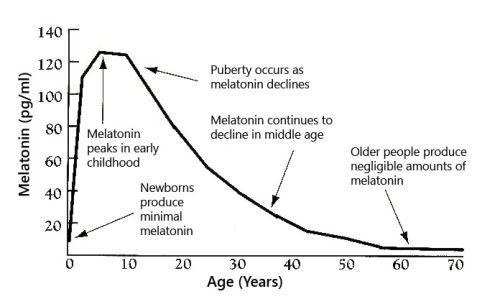Cancer
★★★★★

This new review article (July 2025) goes into detail of why Melatonin is an important molecule to help fight cancer through multiple methods of action. It details much of what is known about how melatonin fights cancer and interacts well with standard of care :
https://www.frontiersin.org/journals/pharmacology/articles/10.3389/fphar.2025.1617508/full
Here is a relevant quote from the article :
' Melatonin (MLT), a naturally occurring hormone produced by the pineal gland, exhibits significant anticancer effects. It has superior antioxidant, inhibit tumor cell proliferation, migration, angiogenesis-inhibiting, and tumor cell apoptosis-inducing functions. Mechanistically, melatonin inhibits tumor development through epigenetic regulation, metabolic reprogramming, immune micro-environment, and regulation of important signaling pathways (PI3K/AKT). In addition, MLT significantly enhances anticancer efficacy in combination with other anticancer drugs, such as cisplatin, 5-fluorouracil, and paclitaxel. However, the shortcomings of melatonin, such as its low bioavailability, rapid metabolism, and significant individual variation in secretion, have limited its clinical application in anticancer therapy. This limitation has been mitigated by targeted delivery and individualized therapy. Therefore, MLT may be a promising candidate for natural hormone therapy in the future. '
I would like to add that melatonin lotion and melatonin gel may also offer a way to help overcome the poor bioavailability of oral melatonin as well as the rapid metabolism of the molecule.
Art
Melatonin and Daytime Use
★★★★★

When we had covid back in January we all used high dose Melatonin (thanks to Art who kept us informed about the protocol! ) I used it on everyone in the house - ages 9 to 83, based on weight, as Dr. Neel recommends. We took it 4 times a day.
My 83 year old mother in law with dementia did not know what the pills I gave her were, I just added them with her other meds and supplements. She was not symptomatic of covid, but we were using it to try and prevent covid since others in the home had it. (I think it worked, or at least helped! She never got sick, but did lose her sense of smell.) Anyway, her sleep/wake patterns were no different than when she wasn't taking round the clock melatonin. (She always takes it at night.)
It was hard to tell how it affected those of us who were actually sick. Sick people sleep more.
I take 15-20 mg of melatonin every night to help me with sleep (and it definitely improves my quality of sleep! )
Last summer, an hour after taking my melatonin dose, my daughter-in-law went into labor. I had an hour of sleep but woke up easily and drove an hour and 20 minutes to the birth center where she had the baby. I had no trouble driving and no trouble staying awake all night.
I had the opportunity to repeat the experiment last week. I had taken my 20 mg of melatonin and fallen asleep when my daughter went into labor. I woke up and stayed up the rest of the night with her and was able to see another grandchild born. (What a privilege! )
I cannot know how it affects others. But I can say that melatonin does not make it impossible for at least some people to stay awake after taking a significant dose. Certainly it would be wise to know how such a dose would affect you before driving a long way or using heavy equipment.
~Mama to Many~
Multiple Conditions
★★★★★


In the above chart, you can see that by age 50, melatonin levels have declined to the level of a newborn which is quite low when compared to the peak seen in childhood. In the following link, there is a chart that you have to scroll down to page 10 to see and it shows how the incidence of Parkinson's Disease (PD) increases with age. Interestingly, the incidence of PD starts to increase noticeably from age 50.
Seems like an interesting coincidence.
Look at the following chart and notice how Deaths from Covid-19 start to notably increase from age 50 and up.
https://www.statista.com/statistics/1191568/reported-deaths-from-covid-by-age-us/
Seems like an interesting coincidence.
Men age 45 or older and women age 55 or older are more likely to have a heart attack than are younger men and women.
https://www.mayoclinic.org/diseases-conditions/heart-attack/symptoms-causes/syc-20373106
Seems like an interesting coincidence.
Middle age is when diabetes diagnoses really start to spike. An estimated 14% of Americans ages 45 to 64, or 11 million people, are diagnosed with type 2. That's almost five times the rate for those 18 to 44.
https://www.webmd.com/diabetes/diabetes-link-age
Seems like an interesting coincidence.
Risk increases significantly after age 50, and half of all cancers occur at age 66 and above. According to the National Cancer Institute, one quarter of new cancer diagnoses are in people aged 65 to 74. Refer to the attached chart to see where melatonin levels are at this age range.
https://www.ncbi.nlm.nih.gov/pmc/articles/PMC4544764/
Seems like an interesting coincidence.
Osteoporosis also starts to become a bigger issue around age 50 when bone stability starts to head south.
Seems like an interesting coincidence.
From this link, you can see that stroke starts to noticeably increase from age 50.
https://www.ncbi.nlm.nih.gov/pmc/articles/PMC3006180/
Seems like an interesting coincidence.
Another interesting coincidence is that melatonin has been shown in studies to help all of these diseases.
Art
Induce Dreaming
★★★★★




